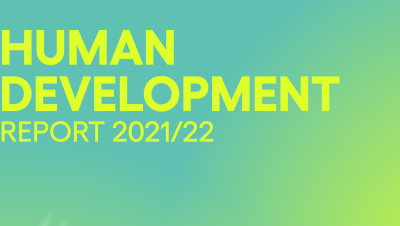The argument voiced in the late 19th century over alleged “freedom of contract” was that any deal between employees and workers was perfectly fine if both sides voluntarily agreed to it. - So workers were worth no more than the wages they could command in the labour market. And if they toiled 12 hour days in sweatshops for lack of any better alternative, it was not a problem. They had “voluntarily” agreed to those conditions. - It was a time of great wealth for a few and squalor for many. And of corruption, as the lackeys of robber barons deposited sacks of cash on the desks of pliant legislators.
Eventually, after decades of labour strife and political tumult, the 20th century brought an understanding that capitalism requires minimum standards of decency and fairness—workplace safety, a minimum wage, maximum hours (and time-and-a-half for overtime) and a ban on child labour.- We also learned that capitalism needs a fair balance of power between big corporations and workers. - We achieved that through antitrust laws that reduced the capacity of giant corporations to impose their will and through labour laws that allowed workers to organize and bargain collectively.
By the 1950s, when 35 percent of private sector workers in the United States belonged to a labour union, they were able to negotiate higher wages and better working conditions than employers would otherwise have voluntarily provided.
But now America seems to be heading back to the 19th century. - Corporations are shifting full-time work onto temps, freelancers and contract workers who fall outside the labour protections established decades ago. - Meanwhile, the nation’s biggest corporations and Wall Street banks are larger and more potent than ever. - And labour union membership has shrunk to fewer than 7 percent of private sector workers. - So it is not surprising we are once again hearing that workers are worth no more than what they can get in the market.
But as we should have learned a century ago, labour markets do not exist in nature. They are created by human beings. The real question is how they are organized and for whose benefit.
In the late 19th century they were organized for the benefit of a few at the top. - But by the middle of the 20th century they were organized for the vast majority. - During the 30 years after the end of World War II, as the economy doubled in size, so did the wages of most Americans—accompanied by improved hours and working conditions.
Yet since around 1980, even though the economy has doubled once again (the Great Recession notwithstanding), the wages of most Americans have stagnated. And their benefits and working conditions have deteriorated.
This is not because most Americans are worth less. In fact, worker productivity is higher than ever. - It is because big corporations, Wall Street and some enormously wealthy individuals have gained political power to organize the market in ways that have enhanced their wealth while leaving most Americans behind.
That includes trade agreements protecting the intellectual property of large corporations and Wall Street’s financial assets but not American jobs and wages. - Bailouts of big Wall Street banks and their executives and shareholders when they cannot pay what they owe, but not of homeowners who cannot meet their mortgage payments.- Bankruptcy protection for big corporations, allowing them to shed their debts, including labour contracts. But no bankruptcy protection for college graduates overburdened with student debts. - Antitrust leniency towards a vast swathe of American industry—including Big Cable (Comcast, AT&T, Time-Warner), Big Tech (Amazon, Google), Big Pharma, the largest Wall Street banks and giant retailers (Walmart).
But it also includes less tolerance towards labour unions—as workers trying to form unions are fired with impunity and more states adopt so-called “right-to-work” laws that undermine unions.
We seem to be heading full speed back to the late 19th century. What will reverse it this time?
Robert Robert Reich is Professor at Berkeley and former United States Secretary of Labor. This blog entry is a special contribution made to the 2015 Human Development Report “Work for Human Development” Please see page 66 for original format.
The HDialogue blog is a platform for debate and discussion. Posts reflect the views of respective authors in their individual capacities and not the views of UNDP/HDRO.
HDRO encourages reflections on the HDialogue contributions. The office posts comments that supports a constructive dialogue on policy options for advancing human development and are formulated respectful of other, potentially differing views. The office reserves the right to contain contributions that appear divisive.
Photo credit: Jordi Cucurull (Flickr: Creative Commons)


